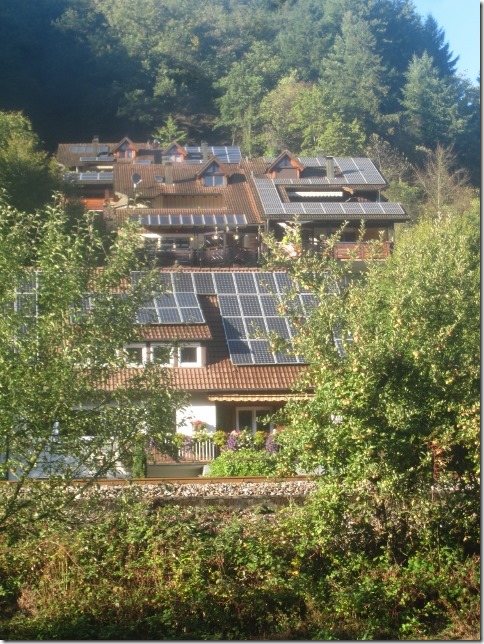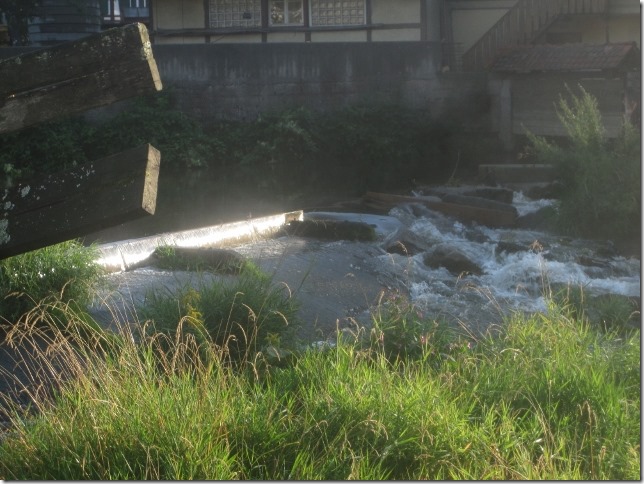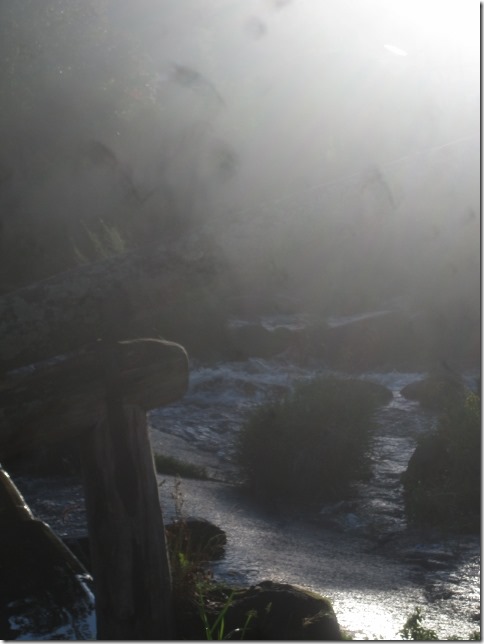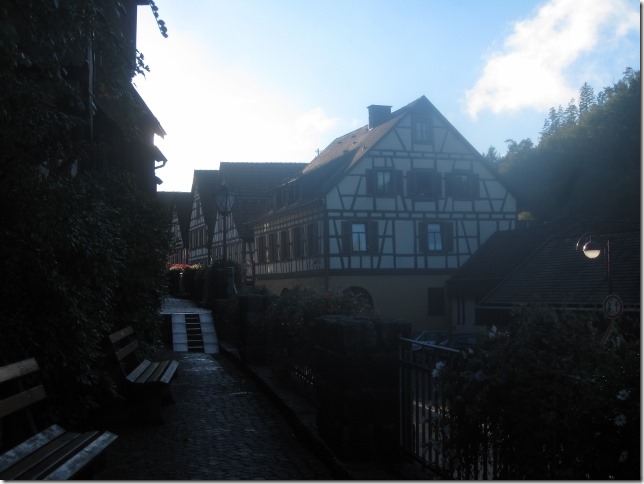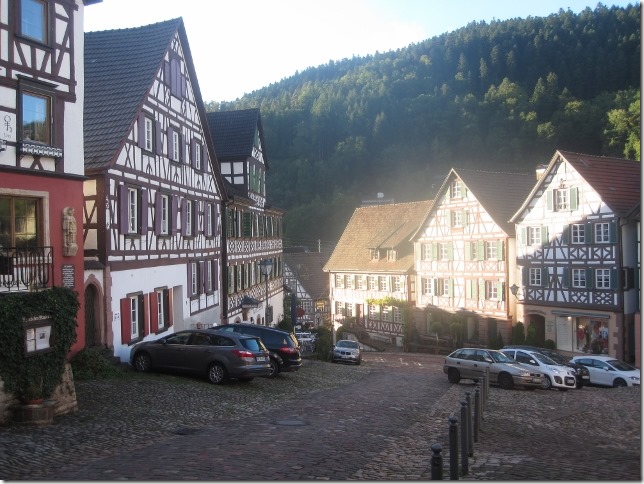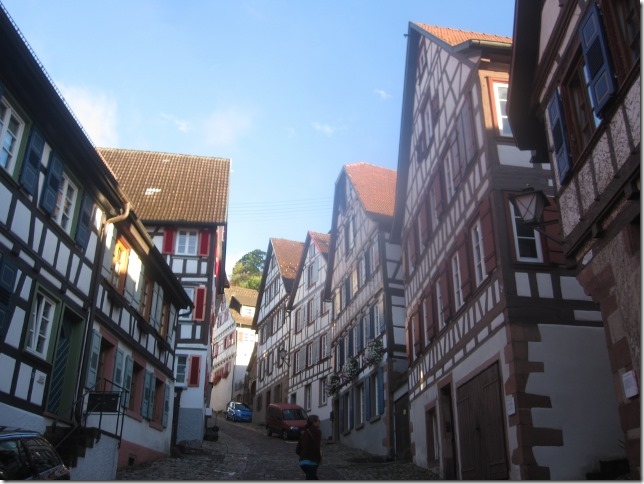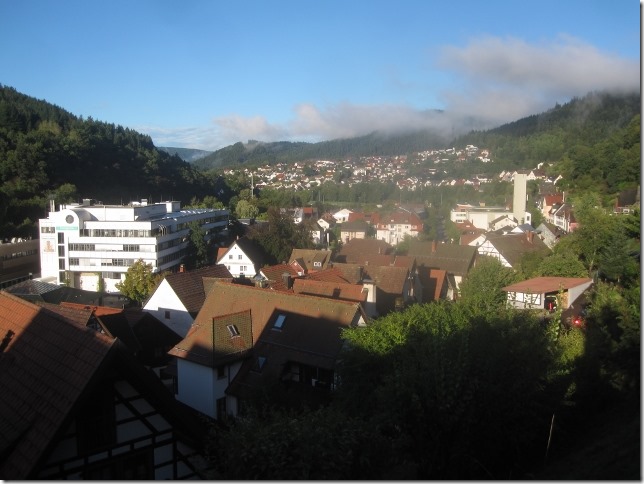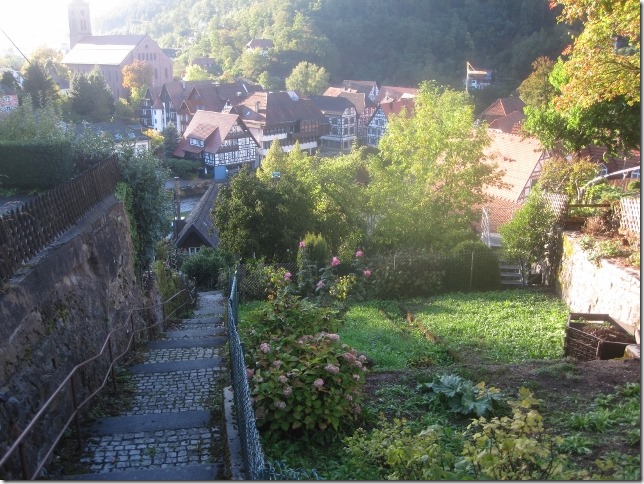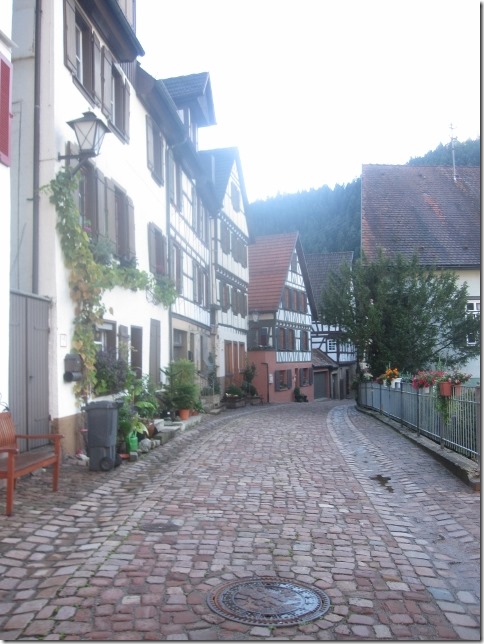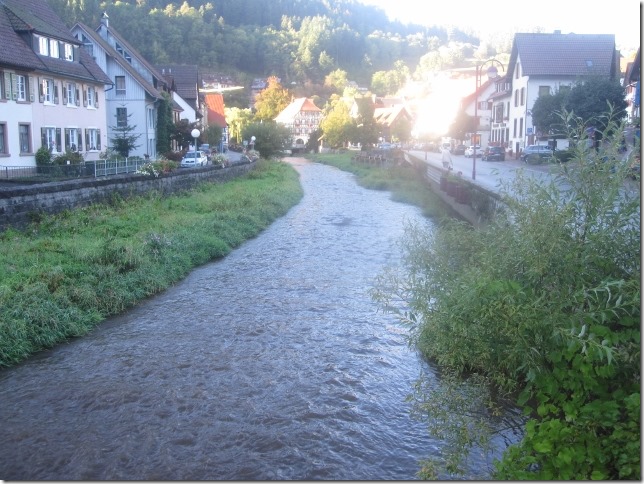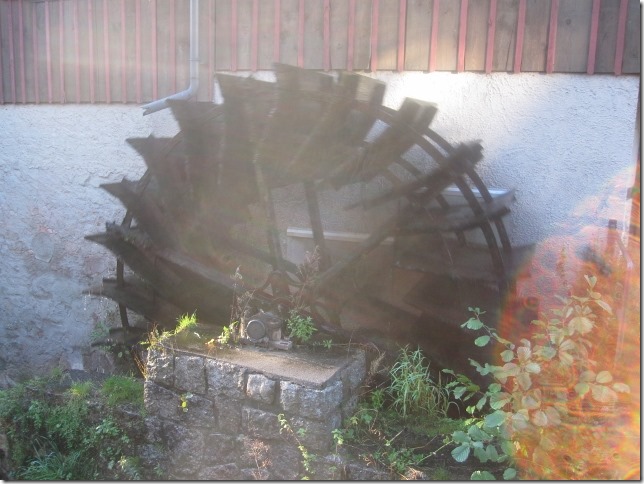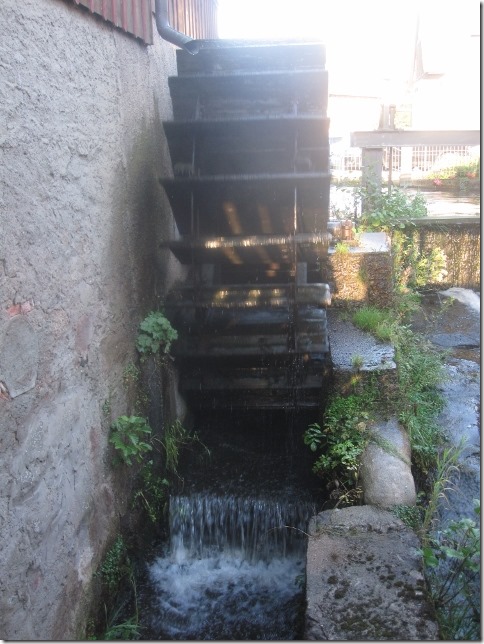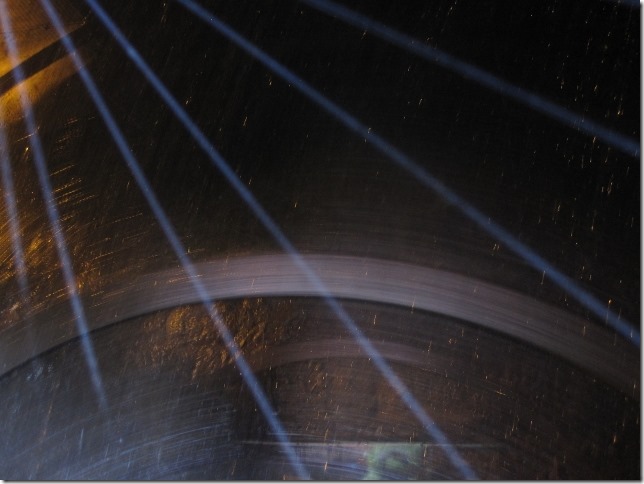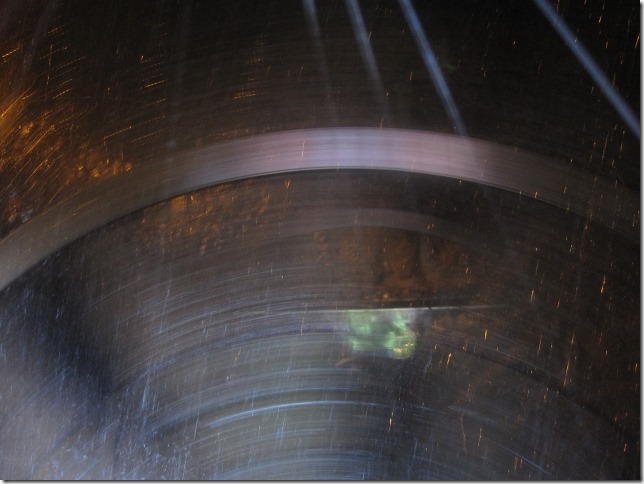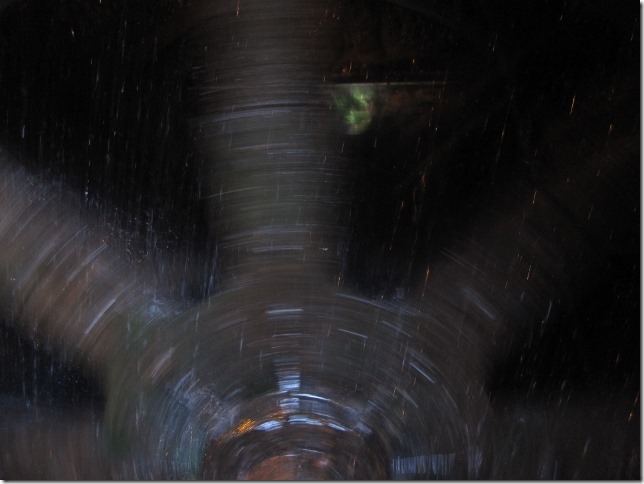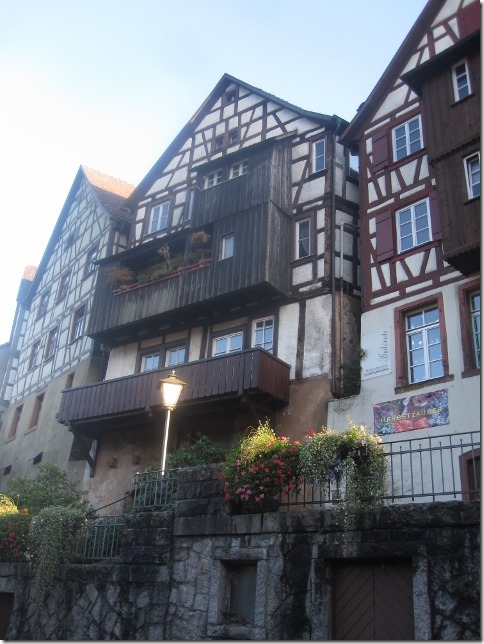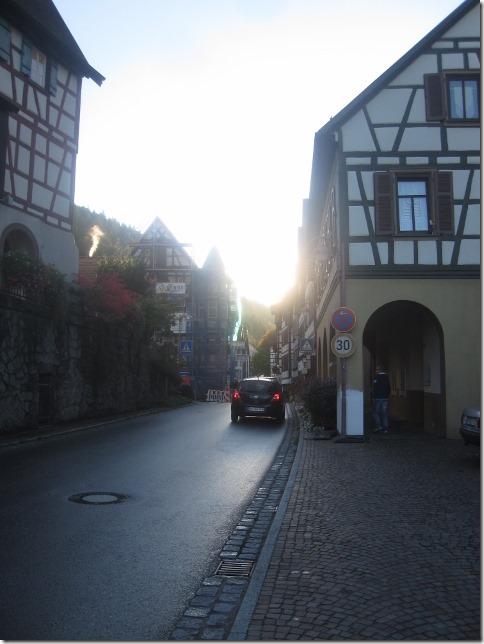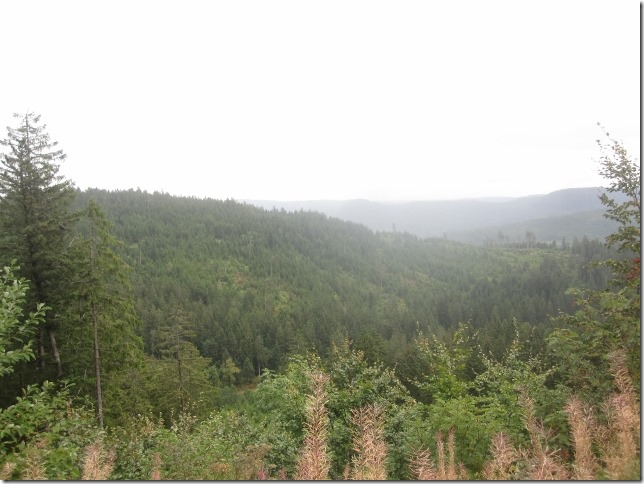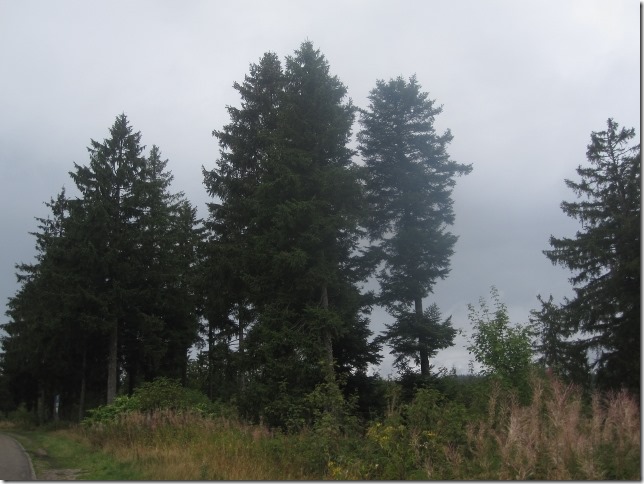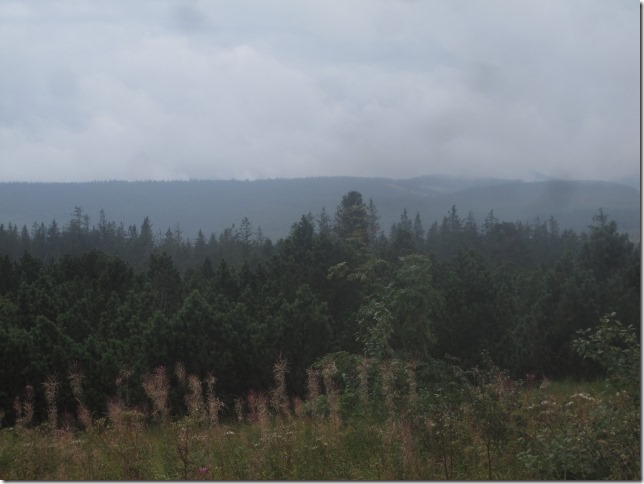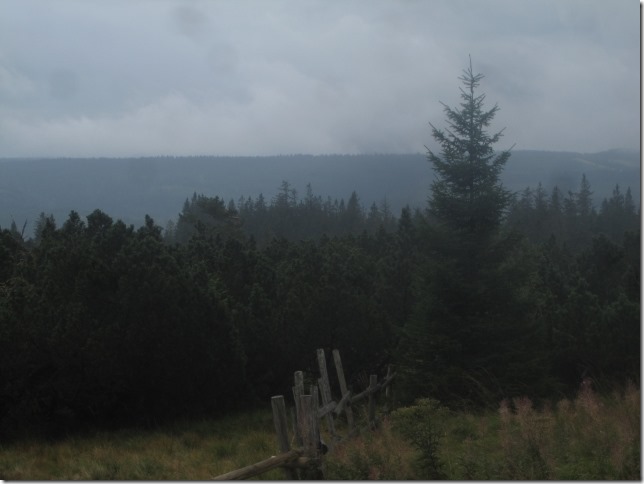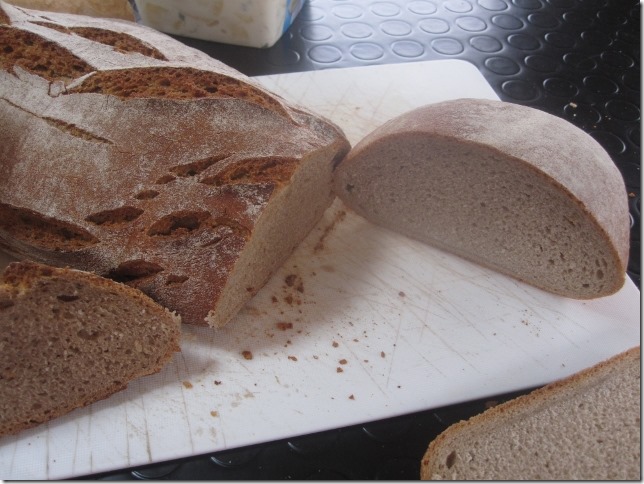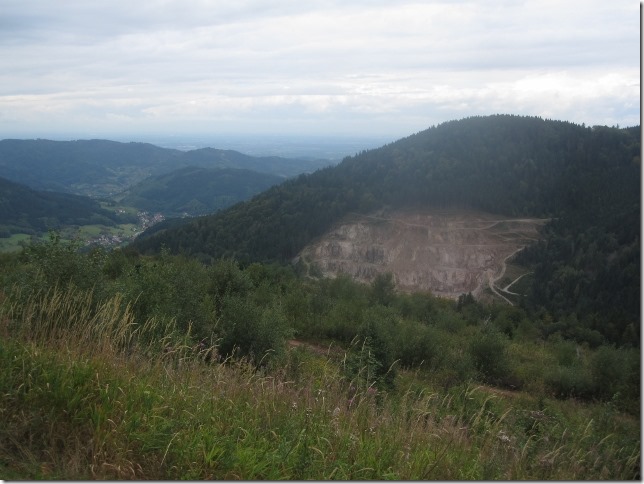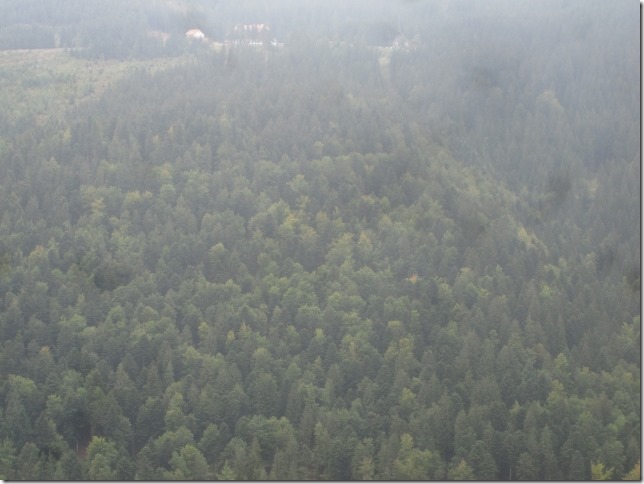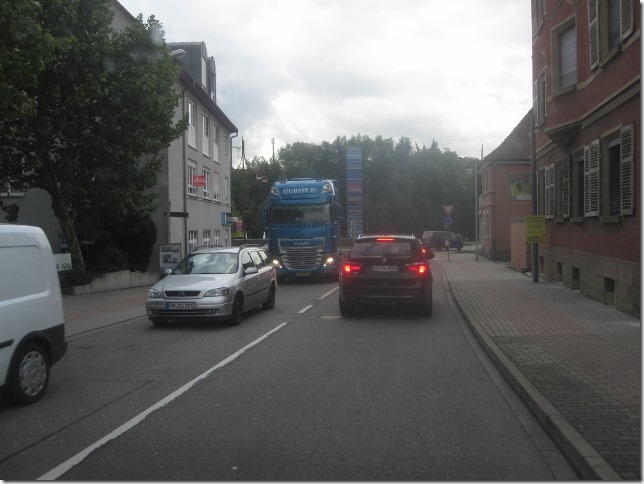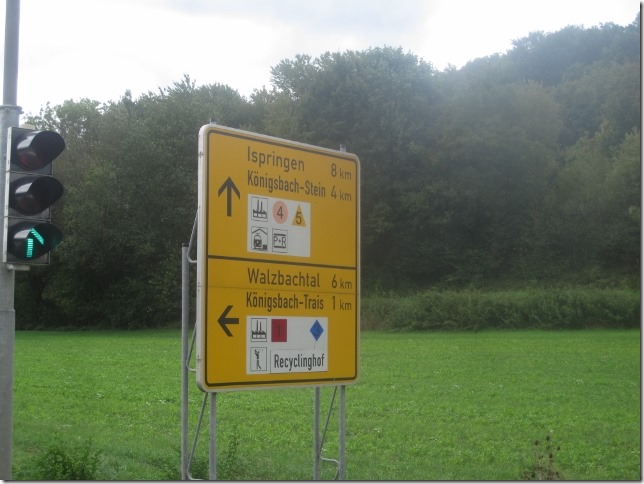We feel a bit down; it carries on raining, it’s got colder, days are getting shorter and our trip is coming to the end…
We could take advantage of the bad weather by doing IT indoors, as we now have plenty of data. But the drive to Schiltach has only taken an hour, which hasn’t given Dora enough time to recharge our computers. There is one aire in the village with free electricity but there are only three sockets, hopefully there is one available for us.
The aire is almost full with cars and motorhomes but none of them are plugged in. We have a bit of lunch and spend the rest of the afternoon updating the drive and trek routes on Google Earth. This is a big task; it takes some time to locate the roads we have driven along and the mountains we walked in. And we don’t make things easy, as we tend to choose small roads, which don’t even show in our atlas. Moreover, we have not updated the maps since we left Croatia, so it could take a few days before we could upload the most updated version to the website.
It is so relaxing being able to work on our computers without worrying about running out of power. However, we don’t mind having lived with such energy limitations. It has made us to appreciate the luxury of abundance and to be conscious of how much we can waste when there is plenty available.
We thought it would never stop raining, but it finally does. We well deserve a break so we go for a walk around the town.
Schiltach is more beautiful in the sunlight.
Talking about electricity, the Germans have really embraced renewable energy sources and many houses are wallpapered with solar panels. They seem a lot less precious about keeping their cute little villages looking traditional, unlike the British who would frown on such a thing. You have zero chance of seeing solar panels on any Cotswold rose covered cottage that leaks energy through its poorly fitting single glazed windows and traditional cob covered walls. However, I feel the German embrace of such technology is a little hypocritical. Germany, swayed by public opinion, is not investing in nuclear power. This in itself is not a problem, but it leaves them with one, they don’t have enough energy for their needs. The solution; import nuclear power from France and let them deal with the waste. I despise this level of hypocrisy! GDR
There is a constant sound of running water in the background. Two rivers, the Kinzig and Schiltach rivers join in the middle of the village.
That sound is so soothing, calming, lively…
Half-timbered houses, old and new dominate the architectural landscape of this place.
Houses are built with the same style but painted in different colours. They are similarly dissimilar.
Schiltach is the prettiest town in the Black Forest by far.
Landscapes, towns, sky, forests…everything in Germany looks so clean, pure and perfect.
Most houses on the hillside have allotments adjacent to them. The owners have cleverly made the most of the constrained size and fit in a fair amount of vegetables as well as colourful flowers to animate their houses. We stop to get some ideas, this is part of our long term plans, which we will talk about in coming posts.
This is what rural Germany looks like.
Slightly different from that rural landscape we have seen in Romania, Bulgaria, Moldova, even in Spain. Rural life has a different meaning here. The concept of village, as we understand it, doesn’t exist. German countryside is formed by small towns, well developed, clean, with at least one factory of any sort. You wonder why hundreds of people may want to come and live here.
A functioning waterwheel sits next to a residential building. What is its movement used for?
Its movement is used to operate a saw to cut all the timber which was harvested from the nearby hills.
How the movement of the waterwheel is perceived by the human eye as fascinating. If you look from the side, the watermill seems to be rotating in slow motion; if you look from behind, it appears to rotate twice as fast.
There is another watermill inside a glass room next to this one. It seems to be part of a museum. Unfortunately, it closed half an hour ago.
This watermill is enormous, so big, it is hard to fit it in our camera lens.
Visiting this museum would have been interesting. Perhaps tomorrow.
Although we have already planned to visit another one: the Grohe factory. More like a museum, it is an exhibition of the products that this factory designs: showers, taps and other bathroom items. We like their style. We are hoping to get ideas for our next house.
We passed another factory down the road, again in a quaint little village. This factory, Duravit, produces bathroom ceramics, our bathroom sink in Guisando comes from there. This is why German towns and villages are thriving while British ones are dying, lack of industry. They don’t die because the post office, shop or pub closes, the post office, shop and pub closes because the village dies. It is the NIMBY crowd (not in my backyard) that prevents development, prevents change, which kills the British village. GDR
It is getting late and chilly. It is time to get back to Dora and continue with our routes. We notice that, although electricity is free, there is a pledge next to the mains thanking for a donation for the maintenance of the aire. Of course, we can spare a couple of euros. The money goes to the red cross.
The next day we awake once again to more rain. The last town in the Black Forest, Aspirsbach does not offer much more than a visit to a monastery where the alcoholic monks have been making beer since the 12th century. Do we like beer? Not really. If they made wine, we would consider.
So we continue to drive north through the last bit of the Black Forest.
It is as gloomy as yesterday.
The Black Forest is popular in winter for skiing and trekking. We pass a few ski resorts, now closed until winter arrives.
We stop at the car park of one of them to have a bit of lunch. I am looking forward to the bread we’ve picked up from Lidl today. It is proper German bread: yummy, thick, doughy, heavy, mouth-watering. Although such a massive loaf could well last up to four days. A bit of heat on the stove will be enough to bring it back to an eatable condition if it gets a bit stale towards the end. Nothing gets wasted in Dora.
I have seen pictures of the Black Forest in winter, when the whole forest is covered with snow and the tree branches reveal timidly through it. It is then, when the dark colour of the trees looks more obvious. It is then when the trees look black.
We pass the place where our via ferrata is, but it hasn’t stopped raining so we can’t do it. I am not disappointed though. I have now realised we may not be doing a great deal outdoors in this country. We have another three days here and the weather forecast doesn’t look promising.
We leave the Black Forest and continue to head off towards Bretten, where we have chosen to stop over. It is on our way to Heidelberg and Trier, the last couple of places we have planned to see in Germany before returning to the UK. Also, there is another aire with cheap electricity. We like German aires.
But the drive is incredibly painful. We take the motorway to save time but we’ve been sitting here for ages, driving at 10km/hour. We leave it as soon as we have a chance but the countryside roads are as packed, everybody has had the same idea.
The traffic doesn’t get any more fluid, it has been an hour since left the motorway, this cannot be due to an accident, as we previously thought. What could it be causing it? Something we have noticed, the roundabouts and cross roads seem to be poorly designed. Motorists are not told far in advance on which lane they need to be positioned. So, everyone pulls in at the last minute, causing chaos and congestion.
So back to hypocrisy, I thought Germans were conscious about the environment, but everyone drives, the roads are absolutely packed. They also drive their big energy guzzling cars right across Europe; in Northern Italy massive German cars outnumbered the tiny Italian ones. It just goes to show they are happy to sacrifice a bit of cash on putting up PV’s but not to use public transport. Funny that. GDR
Here it comes another criticism of German roads: Germans signs are very difficult to read from a far distance; small black letters are placed on a yellow background, which are impossible to read by a long sighted person like me. It is incredibly irritating, let alone dangerous. These could be something to complain to the German traffic authorities. Knowing Germans they will probably change it straightaway, once somebody highlights they’ve done something wrong…
We finally arrive at Bretten at 17.30, which is not bad after all. We plug Dora to the mains which costs €1.00 for 10 hrs. But it doesn’t work. With the help of a local we realise we should have selected the socket before inserting the coin. So that costs us another euro.
Where does that music come from? We leave Dora charging whilst we go to find out.We arrive at a sport centre, where people have gathered to organise a mini-festival with live music, a stand sells German sausages and beer. They seem to be having fun.
We drag ourselves back to Dora to carry on with our routes, although a bit reluctantly. Are we overdosed with Google Earth?
SM
Schiltach – 17/09/2015
Black Forest – 18/09/2015

